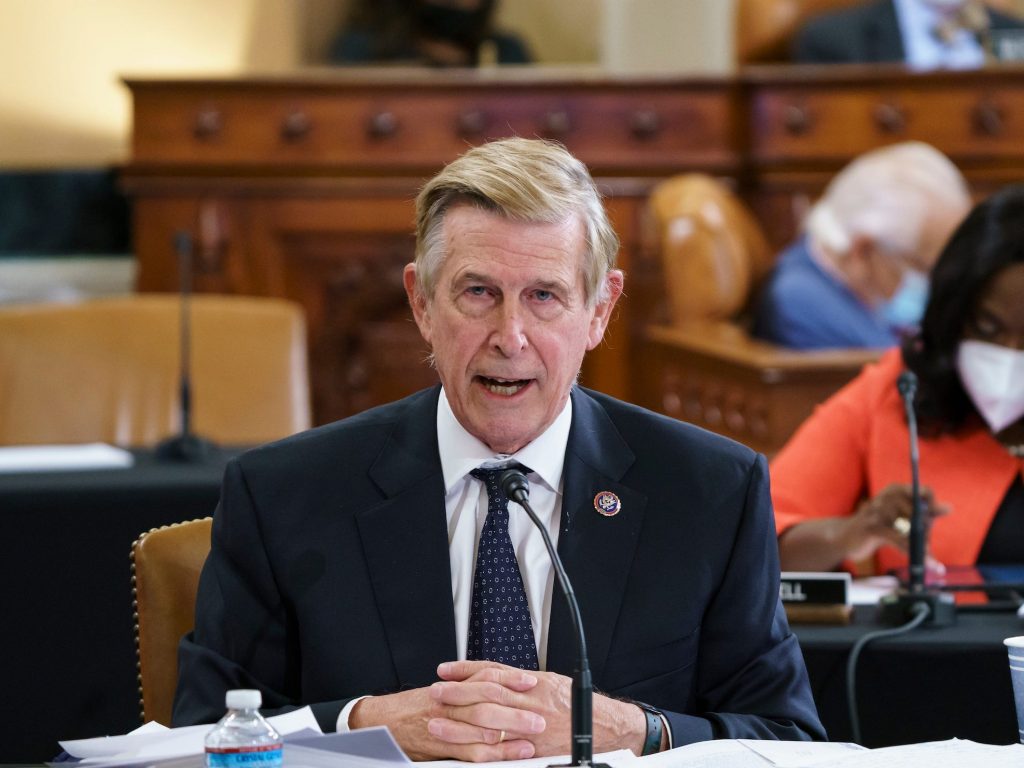- Two Democratic representatives are introducing a minimum tax on billionaires' incomes and assets.
- It's the legislative version of President Biden's proposal to impose higher taxes on billionaires.
- The bill also comes as the door swings back open for Democratic spending negotiations.
In the blink of an eye, Democrats are moving full force ahead with their agenda — and some want to throw a minimum tax on billionaires into the mix.
Reps. Don Beyer of Virginia and Steve Cohen of Tennessee are introducing legislation that would enact a targeted 20% income tax on households worth over $100 million. It's what the Democratic representatives and the Biden administration call a "Billionaire Minimum Income Tax."
"Republicans cut taxes for the richest among us while proposing higher taxes on average people," Beyer said in a statement. "We reject this failed trickle-down economics approach, and are responding with a fair tax policy that will put our country on a stronger fiscal footing while restoring fairness to the tax code."
Under the proposal, which was first introduced by Biden as part of a reconciliation spending package, ultra-wealthy households would be subject to a 20% minimum tax on all of their income. That includes the growing value of unsold assets like stocks and real estate, which is called unrealized capital gains. If billionaires are already paying what amounts to a 20% minimum tax on all of that income, including assets, they won't see an additional levy.
Experts previously told Insider it's a similar set-up to the withholding you see on your paycheck. Billionaires would essentially pre-pay taxes on their unrealized gains, similar to how you pre-pay taxes by withholding, and, if those gains end up being less than what they pre-paid on, they'll get a credit or refund back — similar to the tax refunds millions of Americans get each year.
Traditionally, many of the wealthiest Americans see their fortunes come from assets like stocks and real estate, rather than straightforward cash income. Those assets often see their value balloon, as they did during the pandemic, but are generally only taxed when they're sold off; that's called a capital gain, and it's taxed at a lower rate than the income tax you may see taken out of your paycheck.
"Somebody like me, for instance, I sit here and I look at my computer screen, and the numbers go up generally and I get richer," Morris Pearl, the chair of ultra-wealthy pro-tax advocacy group the Patriotic Millionaires, and former managing director of BlackRock, told Insider. "I have more money in my account, more money that I can spend, and I don't have any taxable income. I don't have a job. I don't work for a living."
Billionaires can sit on those assets for a while, and even borrow against them at low interest rates — which lets them have a billionaire-level cash flow without paying taxes. That's one of the ways that America's 25 wealthiest families paid a true tax rate of 3.4% on $401 billion of income including those unrealized capital gains accrued from 2014 to 2018, according to a bombshell report from ProPublica. The White House previously found that, when including unrealized capital gains as income, the 400 wealthiest families in America pay just 8.2% in income taxes annually.
The proposal comes after Manchin — who has been known for throwing cold water on various Democratic spending proposals — announced a surprise deal with Senate Majority Leader Chuck Schumer on Wednesday night. The Inflation Reduction Act of 2022 would enact a minimum 15% tax on corporations and close the carried interest loophole, which allows people working in private equity and other firms where their incomes come from profits to be taxed at the capital gains tax rate.
In an interview with West Virginia radio host Hoppy Kercheval, Manchin reiterated the importance of closing the carried interest loophole, and imposing a minimum tax on corporations.
But the broad climate and tax proposal did not include the billionaire tax. It's unlikely to get past Manchin, who doomed the White House plan earlier this spring. He argued that "you shouldn't be taxed on the things you don't have."
"I pay my taxes because I want to live in a country that provides things like schools and highways and all the things that taxes go to pay for," Pearl said. "And I don't want to live in a country with a few very rich people and lots of poor people, because you can't make money in a country like that."
